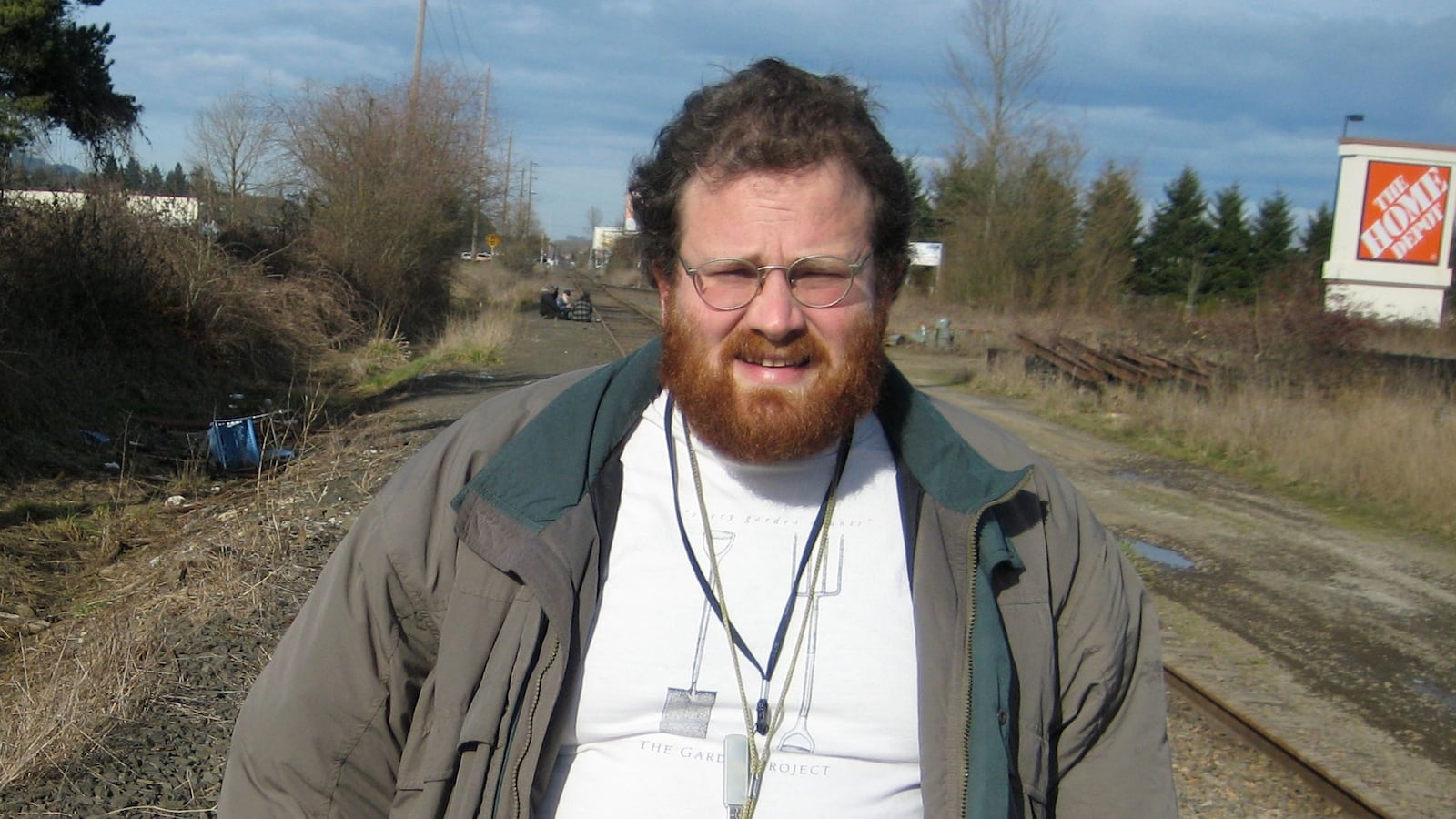The cynic in me has been reading all this exuberant media coverage of the New York City police officer who bought a “homeless” guy a pair of boots, and reacting with what I guess you’d call healthy skepticism. I admired the officer’s kindness, but was suspicious of the recipient, in a way I couldn’t—and didn’t—really verbalize. Who wants to rain on that heartwarming holiday parade?

But in the days since that cop walked into the Skechers in the heart of Times Square and plunked down his hard-earned cash for those brand-new boots, I had several “See?!” moments.
See? The New York Times tracked down the man and dutifully reported that his name is Jeffrey Hillman, and that he is not only no longer wearing the boots (“Those shoes are hidden. They are worth a lot of money,” he told the Times) but that he’s bitter he didn’t get “a piece of the pie” for all the attention that photograph revealed.
And see? He’s not even homeless. He has an apartment in the Bronx, the Daily News discovered after some digging.
See? That officer got duped, I smugly concluded. Dude probably sold the boots, probably walks around barefoot because he makes more money panhandling that way.
I approached the subject with this cynicism not because I don’t care about the plight of the homeless, or think people who live on the streets are faking it. I know that’s not true because my own brother is homeless, and I know how many ways every member of my family has tried and failed to get him off the streets and help him turn his life around. (Before the trolls go off on me for not letting him sleep on my own couch, listen to this and talk to other people who have homeless relatives. It’s not that simple.)
My cynicism about giving things to people on the street—especially money—is borne of years of advice against doing exactly that, of the experts who say in article after article that most panhandled money gets spent on drugs, alcohol, and smokes, and that your cash is so much better directed at a shelter, or some other organization that actually provides housing to homeless people, among other worthwhile causes.
My brother will tell you the same thing. He’s lived on the streets for 20 years, and he rarely “spanges” (asking for spare change) partly because it’s uncomfortable to ask people for money but also because he doesn’t really need money. He has food stamps and soup kitchens that provide him enough to eat, as do most homeless people in most urbanized areas. The only thing cash does for him and them is to buy things they can’t get from social services: booze, drugs, and other material things.
Like boots. Or a bike lock. Or a new inner tube, or a tent. Which is part of why Officer Lawrence DiPrimo’s act of kindness was far more savvy than that of those well-meaning folks who chuck a quarter in a homeless man’s battered fedora. He gave the guy something tangible—something he couldn’t spend on a forty or a blunt.
For the past several years, that’s been my strategy with my brother. I don’t give him money; I give him things. I helped him buy a computer, a new tent, I pay for bike repairs and occasionally give him a ride from one place to the next.
I’m conflicted about doing that. The “rock-bottom” theory would suggest anything I or anyone does to make his life on the streets more palatable means his consciousness is never sufficiently shocked to alter the worldview that lies at the heart of his homelessness: that the odds are stacked against someone like him being able to get a job that pays a decent living wage, so why bother trying?
But I give him stuff anyway, because his requests of me are so polite and infrequent and reasonable I have a hard time saying no. I give him stuff because I am sure he’s not going to sell whatever it is to buy drugs, and I give him stuff despite knowing he is probably going to lose it, like he did the computer.
That’s the hard thing about giving anything to a homeless person directly. They have a difficult time holding onto possessions, because they have no place to lock them up at night. My brother, last time I asked, keeps his belongings at his camp, which he disguises as best he can, given that it’s in the middle of Eugene, Ore. There are no locks or doors there, and anyone who discovers it can—and will—take whatever they want. He’s had all of his belongings burned to the ground before by another homeless man who stole his backpack and then got pissed when my brother confronted him about it. In the summer after I moved him to Eugene last year, where there are better services for homeless people, he lost everything he had nine times. In one summer.
So there’s an argument to be made that you might as well light a dollar on fire as give it to a homeless person, and that it’s unsurprising that Hillman isn’t actually wearing the boots the cop gave him. I was all set to write about that, about how kind but naive DiPrimo is, about how the real lesson in all of this is to keep your change in your pocket.
Then I called Neil Donovan. He’s the executive director of the National Coalition for the Homeless, and he already knew what I wanted.
“You guys are relentless with that story,” Donovan told me.
It took a half hour or so, but Donovan flipped my perspective. First, he said, consider the context. Americans are frustrated about homelessness, jaded about the hyperbolic campaigns to “end it,” and along with the police, they have shifted their approach in dealing with homeless people, from an earnest attempt at fixing the problem to simply getting them out of the way.
“The public is starting to say ‘enough is enough,’” Donovan said. “They’re passing ordinances banning camping and begging in public. It’s compassion fatigue, toxins built up when over the years you’ve promised that the social ills of homelessness are going to get better, over and over again, only to keep coming up with excuses about why it’s as bad as it’s always been.”
A story like DiPrimo’s is just “nice,” Donovan said, and it resolves at least some of the cognitive dissonance we struggle with—torn between wanting to care and feeling hopeless that the problem isn’t over.
But what of the result? What if Hillman is a con man? Aren’t you supposed to give your money to shelters and soup kitchens, and not the actual people?
That’s the cynical response, sure, Donovan replied. “The cynics question the motivations, apply a litmus test: Was the person really in need? Did the act have any level of permanence?”
But the thing to focus on here, Donovan said, is not the result but the situation DiPrimo encountered, and his kind response to it. The fact that a guy is out walking the streets in November without shoes or socks on means “something is wrong,” Donovan said, and “what the officer did was reasonable. He saw a guy without shoes and got shoes. People who spend a lot of time and energy diagnosing whether it was warranted probably could spend their time better staring at a blank wall.”
The thing to remember is that the very act of giving is a good thing. Sure, maybe the guy goes off and buys a six-pack with the money he panhandles in a day. But haven’t you ever spent your discretionary income on something foolish? Is it really that bad to give someone in a lousy situation that same choice? Giving rewards the giver, Donovan reminds me, no matter what happens to the gift.
“That feeling you get walking away from somebody after giving something to them is great,” he said.
And it builds a kind of “muscle memory,” he added—the reflex of compassion upon seeing a homeless person, rather than the reflex of disgust or contempt. DiPrimo could have harassed Hillman, roughed him up, told him to quit loitering and move on. That he was compelled do something kind is a good thing, and that’s the important lesson here, Donovan said. What happened to the boots is beside the point.






